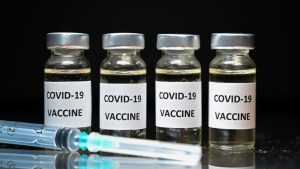EXPLAINER: What does the Pfizer vaccine shipment delay mean for Ontario

BELLEVILLE– As officials across Canada scramble to stem the spread of COVID-19, they were dealt a serious blow recently after one of the vaccine makers announced a delay in its shipments. This pushes back the planned schedule for inoculations and is a blow to those organizing it.
On January 19th, the Ontario government was notified of a delay in the Pfizer-BioNTech vaccine shipment. There was no supply of the vaccine in the week of January 25th, but there will be a shipment of 26,325 doses on February 1st.
With the reduction in delivery of the vaccine to the province and the uncertainty of future shipments, the province, and other officials, are working to create a modified plan to inoculate the most vulnerable. Here is what has changed.
Before the delay:
On Dec.9, 2020, the first COVID-19 vaccine in Canada, manufactured by Pfizer-BioNTech, was approved. Then on Dec.23, 2020, approved the COVID-19 vaccine manufactured by Moderna. Health Canada approved the vaccines after a thorough review for safety, effectiveness, and quality. Health Canada continues to monitor the safety and effectiveness of the vaccine.
A total of 95,000 doses of the Pfizer vaccine were received by December 21. Regular weekly shipments of the vaccine were expected starting January 2021 and additional delivery sites. The plan was to offer vaccines to all residents, health care workers and essential caregivers at long-term care homes in the priority regions of Toronto, Peel, York, and Windsor-Essex by Jan. 21, 2021.
Ontario set up an initiative to vaccinate northern, remote First Nations communities. With the support of Ornge, Ontario’s Air Ambulance Corporation. There would be 680 doses delivered to communities across James Bay Coast, with 575 doses administered or scheduled to be administered to remote fly-in First Nations communities, including 100 staff at Weeneebayko Area Health Authority (WAHA).
What does the delay mean?
Deadlines are pushed back. High priority for vaccination will be given to residents in long-term care, high-risk retirement, and First Nations elder care homes by a new target date of February 5, 2021. This means people who were scheduled to receive their dose of the vaccine before the shipment delay has to reschedule their appointments as priority will be given to those who need it the most. Second doses will continue to be given based on the availability of supply provided by the federal government.
The government will redistribute doses of the Moderna vaccine to ensure the 14 public health units that have not received any vaccine can begin to vaccinate their vulnerable populations. The first vaccination locally started last week.
To support the most vulnerable people’s vaccination and give them the strongest possible protection against the virus, intervals will be extended between doses as needed. For the Pfizer-BioNtech vaccine, the recommended maximum time between doses for resident groups is 21-27 days. The time will be expanded to no more than 42 days for all other groups of people and will be revisited as circumstances change.
Ontario’s initiative to vaccinate northern, remote First Nations communities will continue. Currently, 760 doses have been delivered by Ornge to Sioux Lookout. 568 doses have been administered by Sioux Lookout Meno Ya Win Health Centre and 45 doses administered by Sioux Lookout First Nations Health Authority (SLFNHA). In February, Ornge will lead Operation Remote Immunity to distribute the vaccine to 31 fly-in communities.
 Print This Post
Print This Post






